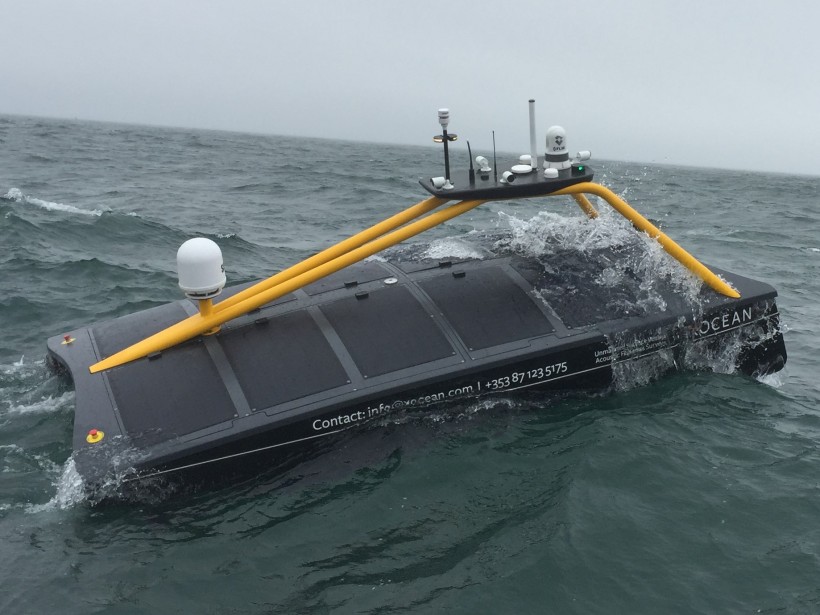Since touching down in Halifax earlier in the autumn, James Ives has been wondering if the East Coast city could make a suitable North American base for his company, which uses unmanned boats to gather ocean data.
Ives is the co-founder and CEO of Xocean, an Irish company that is developing a fleet of unmanned surface vessels (USVs) to gather data from the murky depths. It’s built on the premise that gathering marine data with unmanned vessels is safer, less expensive and better for the environment than using research ships. And in the coming years, data on the oceans is going to become more and more important, he says.
“The ocean economy is hugely important and our premise is that any responsible growth of the ocean economy has to be built on data,” said Ives in an interview in Halifax last week.
He was in Halifax because Xocean is one of a handful of ocean-related companies that are enrolled in the current cohort of the Creative Destruction Lab Atlantic. Entrevestor has been talking to these companies this week. On Thursday we took a look at MicroWise of Denmark and today we’re profiling 18-month-old Xocean, which is trying to make ocean data easier to attain.
“In my career, I’ve been a major buyer of ocean data and there are a lot of frustrations,” said Ives, who’s worked with Accenture and headed the environmental group OpenHydro. The high cost of data was the main frustration, but there’s also the time it takes to get it and the quality of the data.
In 2017, he and three co-founders established Xocean in Carlingford, near the border with Northern Ireland, to develop a fleet of USVs that could collect data efficiently. The company is not building up its own data sets but is a service company that helps such clients as governments, research institutions, corporations and others to gather submarine data. The information it can collect ranges from mapping the seabed, to fish stocks, to environmental data.
Ocean-Related Startups Beginning to Surface in Atlantic Canada
It now has one USV, the XO-450, a craft that can operate at one-third of the cost of a conventional ship. With its control staff on the shore, it can operate around the clock, has an 18-day endurance and can collect data 100 nautical miles offshore. The company is now building its second vessel.
The team sees a massive opportunity, said Ives, because the ocean economy is forecast to double in size to $3 trillion in the next decade.
The company so far has been funded by the founders, with the support of such groups as Enterprise Ireland. As the company grows, it hopes to establish operations in North America as well as Europe and is considering opening an operational hub in Halifax.
“We’re here in Atlantic Canada because we see there’s an important opportunity,” said Ives. “When we look at our business, we see the ocean economy as a global business. We see a number of markets where the ocean economy has been prioritized and this is one of them.”










